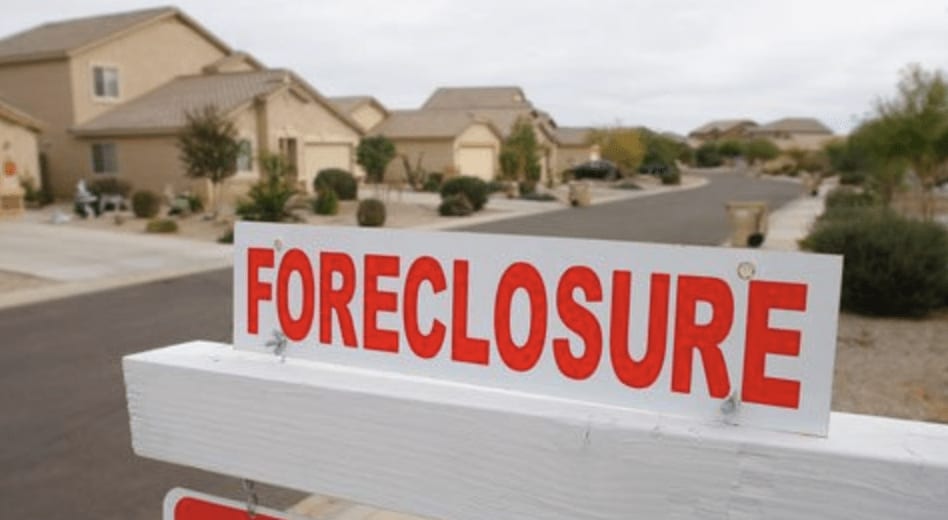Before we get into the five best ways to invest in Arizona real estate, let’s first look at WHY you should consider investing in real estate.
Why is Owning Real Estate a Good Investment?
The best investment, without exception, in my opinion, is real estate! Real estate is a tax-favored asset class, is a basic need that is always in demand, provides a hedge against inflation, has capital appreciation potential, and can produce CASH FLOW! No other asset class gives you all these benefits! Our personal family legacy is to generate residual income beyond our means for years or even generations to come. We have personally been investing in real estate as a family beginning in our early 20s and will continue long after we “retire” from the day-to-day activities of real estate.
We have our hand in nearly every aspect of real estate and real estate investing and want to explore five of our favorite strategies for investing so that you can feel more confident in taking the next step to transform your future!
So Why Arizona?
Whether you’re buying a rental property or buying a home for yourself to sell down the road, Arizona is a beautiful and highly sought-after state. Maricopa County is the largest growing county in the United States!
Why you ask.
- People want to move here
- People want to vacation here
- People want to retire here
- Our job market is strong and growing
- A wide diversity of housing options and prices
- Our incredible weather (for most of the year) and 300+ days of sunshine per year
- Favorable property tax rates compared with many places
- Great sports, arts, entertainment, and social scene
The median list price of a single-family detached home in Phoenix is currently $639,900 and 35 days on the market. In Scottsdale, it is $1,399,000 and 63 days on the market.
When talking about Condos and Townhouses, for Scottsdale the median list price is $522,475 and 49 days on the market and in Phoenix, it is $350,000 and 35 days on the market. But keep in mind that these are only two of the cities that make up the Phoenix metro area and Maricopa County so there are lots of other areas to meet your lifestyle and budget needs.
Overall, our market continues to get hotter. More sales demand and fewer homes listed have contributed to a relatively long run of increasing prices. Current supply and demand levels show no sign of prices changing from their current trend.
Now let’s take a look at the five different categories of real estate investments.
The Five Different Categories of Real Estate Investments
Residential:

This one is pretty self-explanatory. Residential real estate refers to properties such as houses, condos, townhouses, and apartment buildings. When you’re investing in residential buildings you can either rent them out to a tenant or “flip them” for a profit. Residential leases typically last one year.
Commercial:
Commercial real estate buildings can include properties like office buildings, hotels, skyscrapers, and more. In this case, you would be renting the buildings out to business owners and companies rather than homeowners. Commercial lease agreements tend to last 3-5 years.
Industrial:
Industrial buildings include properties like cold storage, warehouses, distribution centers, factories, etc.
Retail:
Retail buildings include properties like strip malls, shopping malls, and storefronts. In some cases, you may also receive a portion of the store’s sales in addition to the monthly rent.
Raw Land:
One fact about land is that they are not making any more of it! As such, investing in land in the right areas can be a lucrative investment. Raw land is a plot of land that has not been developed or prepared for construction; it's completely untouched terrain. This is usually the cheapest type of land and can have the lowest taxes. Whereas underimproved land will have some improvements over raw land. It might be closer to a road; utilities might go up to the property and be readily available for connecting.
In our business we focus predominately on residential real estate and I am now going to share with you our top five investing strategies.
The Five Different Ways to Invest
#1 Invest in Your Children’s Future
The benefits of a higher education cannot be denied and as parents we all want to give our children the best opportunity for success. But what if we could give them a leap and bounds head start over their peers WHILE they are in school that also can significantly reduce or even eliminate their housing costs AND potentially their tuition costs while in school? Sound too good to be true? Maybe not!
If you have a college bound child, you might want to consider purchasing real estate near the school that they are attending. Ideally you will want to find a property that has room for your child as well as a couple of roommates whose rent can significantly offset, completely cover or even bring in profit on a monthly basis. Your child can live there and learn the skills of securing quality tenants/roommates, collecting rent, maintaining a property and other lifelong skill sets that they likely could never learn in a classroom! From an investment standpoint, real estate near universities traditionally holds their value and can often have higher appreciation values than the neighboring areas.
When your child graduates, you can sell the property to pay off student loans so they have a fresh start in life without the burden of student loan debt. Or you can choose to continue to rent the property out and your child can earn a management fee for their services. You can even work with your child to build their positive credit during college and you can sell the property to them after college and they can obtain their own financing to continue to grow their credit and start their journey into real estate ownership and investing. The possibilities are endless!
PLUS, if you add your student to the property title, they may be able to establish residency in the state in which they are attending school and reap the benefits of lower in-state tuition! There really is no downside to exploring this type of investing if you have college bound students!
All states and Universities have different requirements for establishing residency so be sure to explore this carefully. This is an example from one of Arizona’s universities.
“To be eligible for classification as an Arizona resident for tuition purposes, a person must be able to prove continuous physical presence in Arizona for at least 12 months immediately preceding the semester of application. This presence must be coupled with clear and convincing evidence of intent to establish a domicile in Arizona BEYOND THE CIRCUMSTANCE OF BEING A STUDENT. Mere presence of a person in this state does not, by itself, constitute domicile. There is a presumption that no adult student or emancipated minor has established a domicile in this state while attending any educational institution in this state.”
#2 Turn your second home into extra income
Arizona is a hot spot for second home owners and vacationers. If you love traveling to Arizona (or any other place) and generally stay at resorts or STR properties, why not consider making your vacation destination an income source? Reap the benefits of always having a place to stay when you travel and significantly reduce or even eliminate your costs. If you intend on retiring in a certain location, you can purchase a home now for retirement – use it when you travel for vacation and use the income to pay down the mortgage with the goal of paying off the loan and owning the home free and clear by the time you are ready to move into it full time! Curious what your home (or future home) may rent for? Find out in just a few minutes with the calculator below.
#3 Fix and Flip
With the popularity of HGTV, this is probably the most familiar form of real estate investing. While the TV shows can tend to simplify the process, this can be a great investing strategy if you have the right skill sets and resources. Having an eye for design and what is on trend is important as well to appeal to the most buyers. Staying on budget is also a huge factor as it can be easy to get caught up in over-improving a property for the neighborhood. However, unfortunately the opposite is often found in amateur remodel jobs where it is very evident that shortcuts have been taken or substandard installation methods have been used. This can end up causing the investor more time and money as it can delay securing a contract and/or cause excess fees when inspections uncover the flaws.
If you are new to this form of investing, make sure you seek the advice of a seasoned real estate agent with investing expertise to help guide you in what improvements will bring the biggest return and what will be needed to sell quickly and for the highest price given the recent sales comparables. Also ensure that you hire professionals to do the work that you are not adept at to save time, money and aggravation in the long run.
#4 Long-Term Hold Rental Properties
This can include both long-term and short-term rentals (STR). While short-term rentals can bring in significantly higher income, many factors can make them a bit more challenging so it is important to weigh these factors against the benefits.
Things to consider when determining if you want to have a long-term or short-term rental property:
- You need to ensure that the neighborhood that the property is in is short-term rental compliant. Many neighborhoods that are governed by Home Owner’s Associations have implemented restrictions on the minimum days that a home under their governance, can be rented, if at all. It is important to review these guidelines in detail before investing in a home if you intend to use it for this purpose.
- Many cities have enacted licensing laws to help regulate the STR market and to create a bit more harmony between neighbors and investors. If you fail to meet and consistently abide by these regulations, you can face severe financial penalties as well as risk having your license revoked or not renewed which would render your business inoperable.
- In our market, there are many opportunities to purchase a turn-key vacation rental property complete with bookings – but of course, you will pay a premium for these. The advantage here is that you can start operations from essentially day one. You may be able to secure a better deal on a property that needs some updating but you will have to balance this with the loss of income for the time it takes to renovate as well as the costs to improve, furnish, and accessorize the property.
- With STR it is important to also evaluate your competition in the area to ensure that the market is not too saturated. Otherwise, your vacancy rate can be higher than expected. Knowing what is expected by guests for any given area and standing apart from the rest with some unique attributes, amenities or features can help you secure positive reviews that will help you secure more bookings. A seasoned Real Estate Agent with experience in STR should be able to provide their expertise to ensure that you are educated in these matters.
- STR take a far greater amount of time to manage and maintain than long-term rentals. Management companies that will handle everything for you are available but will cut into your profits but can be invaluable if you do not have the time to dedicate to doing it yourself and doing it well. Just a few bad reviews can be extremely detrimental to your booking numbers, particularly in a market that has lots of competition.
Long-term rentals take far less day-to-day effort and only require attention when a repair is needed or a tenant moves out/in. They have the advantage of bringing in a consistent amount of income each month versus potentially extreme fluctuations from changes in booking frequency and seasonality. Both are great investment options so it just comes down to what your goals are! But the common goal with both these types of properties is that you are holding them for the long haul. But if the market is particularly strong and it makes sense to liquidate, then there are avenues to do this that still protect your gains…but this is a topic for another blog.
#5 Strategies for Identifying Investment Opportunities

Here are three ways that we identify investment opportunities:
-
Foreclosure/Trustee sale properties. It is important to note that foreclosure laws vary significantly from state to state so it is important to consult with an expert before purchasing this type of property. These types of properties are purchased in their current as-is condition with no inspections or warranties of any kind. So, there can definitely be some underlying issues that can come back to bite your bottom-line budget if they are discovered after you have already purchased. While these types of properties can have the highest margins, they typically also come with the most risk.
-
MLS Searches. Plenty of great investment opportunities can be found on your local MLS! Again, it is important to be working with an agent that knows how to identify a good deal when they see one as these properties can sell quickly and with potentially multiple offers. A couple of ways that we search for these types of properties is to have searches set up for properties that are identified by a distressed property label such as Short Sale, Foreclosure, Needs Fix-Up, Cash Only and/or high days on market. All of these can indicate that the seller is willing to accept less than market value for a quick sale.
-
There are lots of groups and companies that act as middle men in the real estate investing world. While most of us do not want to dedicate the time, financial outlay and energy needed to identify sellers that might be willing to sell at a discount due to financial or personal crisis, these groups dedicate themselves to this endeavor. They will come to an agreement with the owner to purchase their home and will then seek out other investors and assign the sale to them with a profit margin for themselves built in. If you can align yourself with a few of these groups that are consistently finding good off-market deals, this can be a great resource for great investment opportunities.
Other Ways Real Estate Investors Can Make Money
Investing in real estate has a long list of advantages and benefits. And one of the most appealing advantages is the ability to earn passive income. When you invest in a property, there are a few potential income streams you can look forward to. The obvious one is rental income from tenants. After you cover expenses (utilities, mortgage, etc.) The rest of the rent is money in your pocket.
Your goal here is to make sure you’re earning enough rental income to cover your mortgage, taxes, insurance, property management, and any other debt related to the property.
You aim to make a profit after all expenses, so keep that in mind when you’re setting the rental price. This profit will help you build up a financial wall over time, so you can support yourself and your family. But there are a few other ways people who invest in real estate make an income.
1. Appreciation: This refers to how much your property increases in value over time. So, ideally, you buy a property when it’s cheap. Then over time, the property goes up in value and you sell it. The goal of most real estate investments is to get a good return.
a. House prices are tied to inflation. An example from Investopedia illustrates this concept best.
“Consider an economy that has a money supply of only $10 and five identical houses in the whole economy. Each house would be priced at $2 (assuming no other goods in the economy).
Now, suppose the central bank decides to print more money and the money supply expands to $20. Now each house would be priced at $4.”So in theory, you would want to buy when the houses are priced at $2 and sell when they go up to $4.
b. Another factor to consider about appreciation is gentrification. Gentrification refers to the process of changing a neighborhood with a flood of renovated homes, big box stores, increased neighborhood amenities, and other high-end developments.
2. Business Operations: If you invest in a commercial or industrial property, business operations could include revenue-generating tools such as vending machines, paid parking, laundry services, etc.
Know Who You are Working With
Not all Real Estate Agents are adept in the nuances of real estate investing. So, it is important to work with an agent that:
- Is intimately familiar with the area, neighborhoods, trends, and overall market climate and is generally an expert in the local market.
- Knows determining ROI, rents, and appreciation rates for the area.
- Knows a good deal when they see one! This cannot be underestimated and goes along with the above items. If an agent knows their market, they will know when a deal is worth pursuing.
- Is a trusted advisor and always has YOUR investment goals at heart.
- Has access to and knows how to find undervalued, REO, and off-market properties.
- Is a referral resource for contractors, suppliers, hard money lenders, insurance, and tenant acquisition.
- Is willing to get their hands dirty and can see the potential in a property and offer suggestions for best value improvements, style trends, and ARV (After Repair Value).
- Knows how to negotiate like a boss!
The moral of the story is to always work with an agent who has local knowledge, so they can properly advise you and help you meet your needs. After all, you don’t want to make important decisions on your financial future, with limited info, right? Ideally you want to work with an agent that walks the walk and talks the talk and has investment properties of their own. This first-hand knowledge and experience is invaluable.
Ready to Invest?
So, if you are not convinced by now to start investing in real estate, here are some final thoughts and benefits of becoming a real estate investor.
Security: while no investment is free of risk, if you are investing wisely and have a long-term play mentality versus a get-rich-quick mentality about investing, then real estate investing can certainly provide a sense of security that investing in the stock market and other investment sources cannot provide.
Freedom: Make no mistake, real estate investing is a lot of work but the payoff can be so rewarding…not only financially but also seeing firsthand the fruits of your labor from transforming a house into a home and positively impacting the community and neighborhood! If the investing bug takes hold, you can even break free from the chains of a mundane job that you don’t love or want to be at!
Happiness: Imagine waking up every day feeling excited about what you do, having the freedom to spend your days as you want and with whom you want! Residual and passive income can do this for you!
If you have more questions about your specific situation and how investing might look for you, reach out! We would love to chat and put a plan in place to secure your financial future!
Contact us.
















